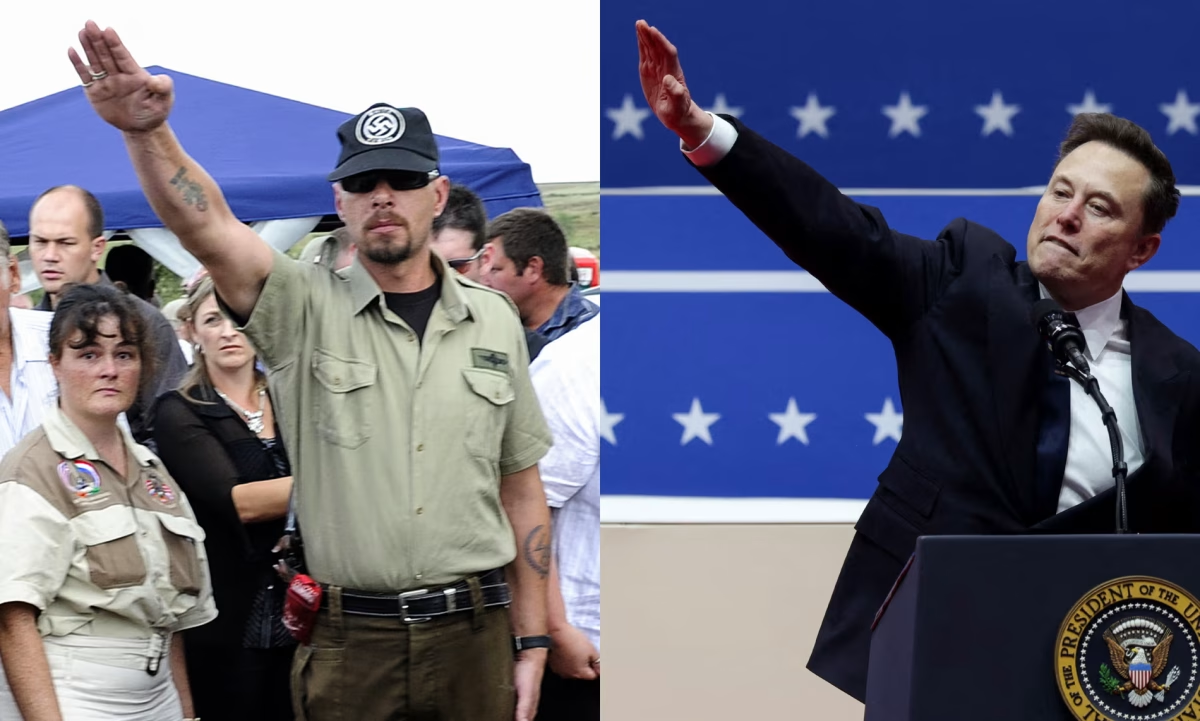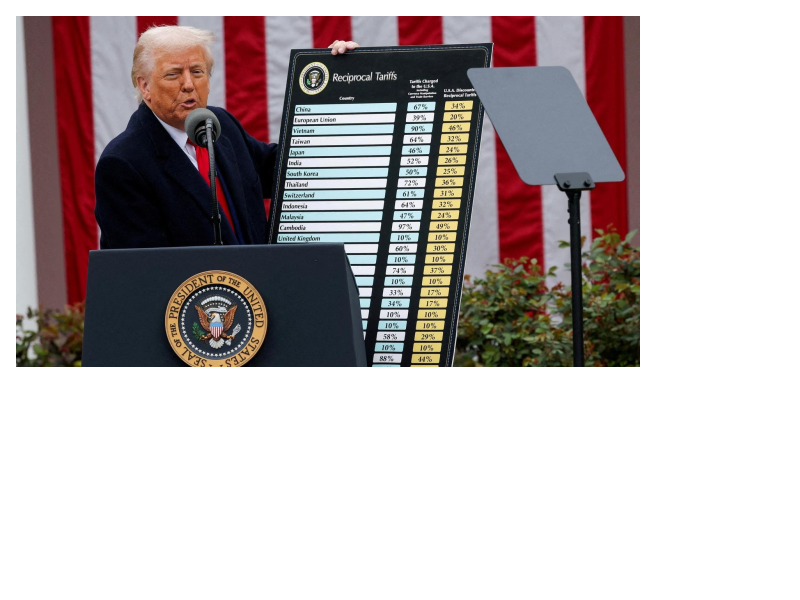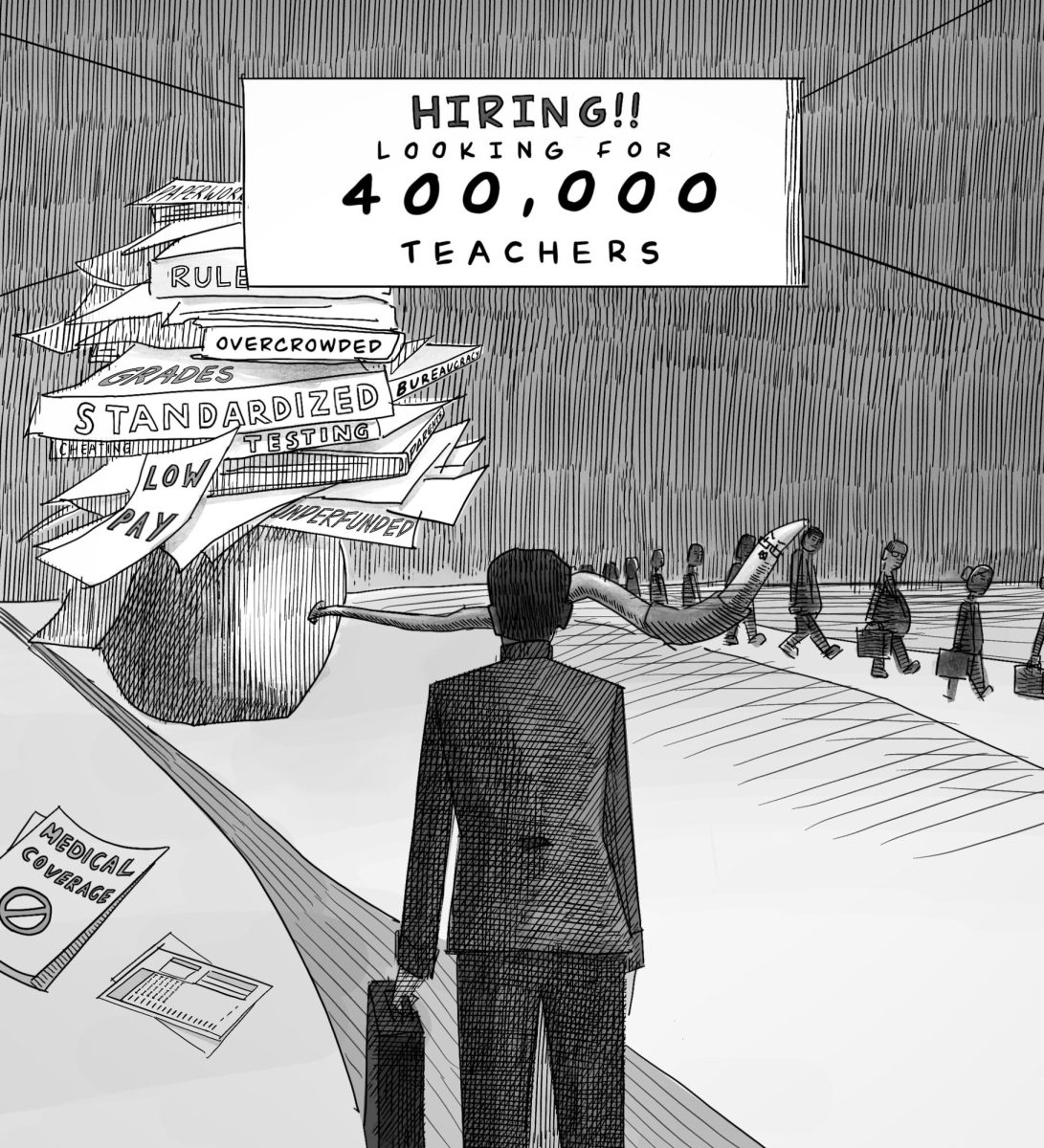On the day of President Donald Trump’s inauguration, key endorser Elon Musk performed two Nazi salutes in front of a crowd, an act that launched the U.S. onto Genocide Watch’s “Red Flag Alert” radar. Authoritarianism has been on the rise globally in the last few years, such as South Korea’s near military coup and Vladimir Putin’s war of aggression against Ukraine. In both circumstances, violence was threatened and performed, upsetting national peace and human rights. Although not quite at the same level as these examples, the U.S.’s own brand of authoritarianism has grown dangerous as well – and progressively fascist.
Fascism, similar to most political terms, is an ideology that is difficult to identify, especially since most of its attributes can also be found in other political systems and forms of government. Inclusively, a too strict definition of fascism leaves out governments viewed as cornerstones of the ideology. Fascism can be defined as an authoritarian movement centered around a single strongman, that aims to prevent a nation’s perceived decline, especially against internal and external enemies. As a result of the ultra-nationalism, fascism tends towards persecution and warmongering, while overemphasis on a single leader to determine affairs can lead to a beleaguered bureaucracy and cronyism within government.
Though Americanized in nature, Trump’s rise shares undeniably similar characteristics to the Spanish, German, and Italian fascist revolutions of the last century. The slogan “Make America Great Again” is reminiscent of Mussolini’s aims to restore Italy to its “Roman Empire” greatness in the aftermath of a taxing world war, not to mention the January 6 insurrection and the March on Rome (both attempts to extralegally force a strongman into power). Italy under Mussolini–similar to fascist Spain and Nazi Germany, was plagued by political oppression, terrorism, and overall a disappointing lack of regard for human rights. Trump has not enacted replicas of these acts, but he has encouraged violence and threatened political rivals. Also, the Trump administration has expressed willingness to enact laws that would oppress marginalized communities– such as dismantling DEI programs and rejecting the existence of trans and intersex individuals.
These reasons have induced both Trump staffers (former Chief of Staff John Kelly) and historians of fascism (Timothy Snyder, in his book On Tyranny) to proclaim Trump and his administration as fascist. Many of Trump’s actions align with the 13 points present in the Eternal Fascist, a tract published in 1995 by Italian philosopher and scholar of fascism Umberto Edo. Beliefs noted in the tract, such as “an obsession with a plot” and “appeals to a frustrated middle class” seem perfect to describe the Trump campaign; specifically, the obsession with a plot by liberals and immigrants to undermine the concept of America, appeals to a middle class that feels abandoned by its existing institutions. Trump, then, is framed as being the only voice of truth within a corrupt structure.
Of course, there is criticism against those who call Trump and his endorsers fascists. For one, the title could function as fear mongering, and may misrepresent what the administration actually intends. Arguments on terminology state that Trumpian ideology hinges on a more homegrown alt-right nationalism, characterized by distrust in national institutions, conservatism, and tendency towards white supremacy. The Trump administration’s capitalization on the movement and bigoted sentiments allowed it to utilize alt-right media platforms as a platform, and the voters as a base. Even without the label of fascism, the Trump administration’s actions prove problematic: according to the NBC and Washington Post, recent ICE raids have required to meet a “quota of between 1,200 and 1,500 arrests per day”, an increase in the amount of arrests from the Biden administration. But disregarding the title entirely would be denying the real similarities Trump’s practices have with fascism and the dangers that it poses.
The system of authoritarianism the Trump administration expresses is not unique. They have been seen in other nations across history. The administration discredits national institutions which protect individuals, alienates allies, and suspends aid for in-need organizations and nations. This, alongside other controversial policies, has led to increased polarization in the U.S., and increased turmoil outside it. As a result of the U.S.’s large political and economic influence on the rest of the world, an increasing fascist presence would easily inspire other fascist regimes to usurp power elsewhere in replica of the state.












